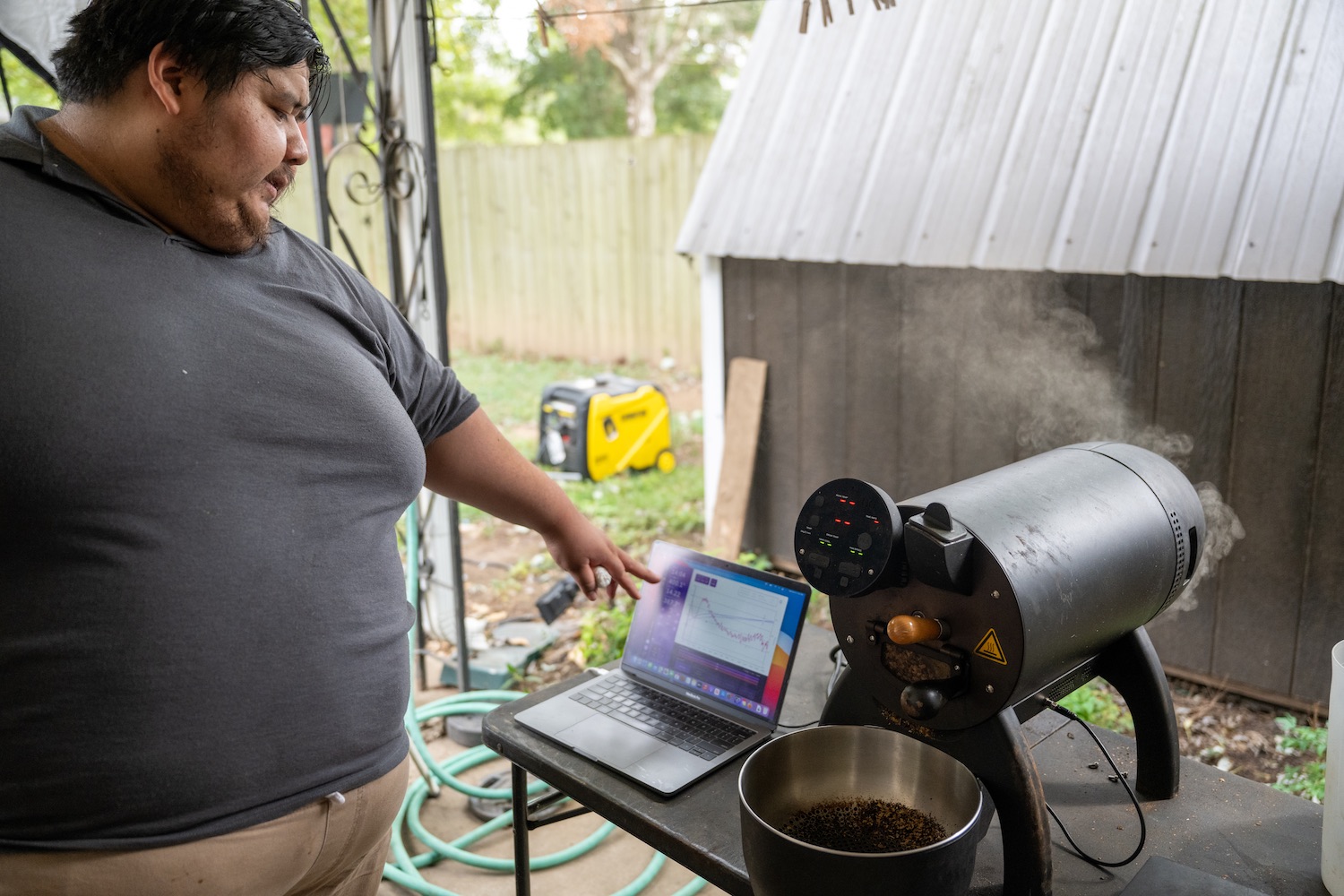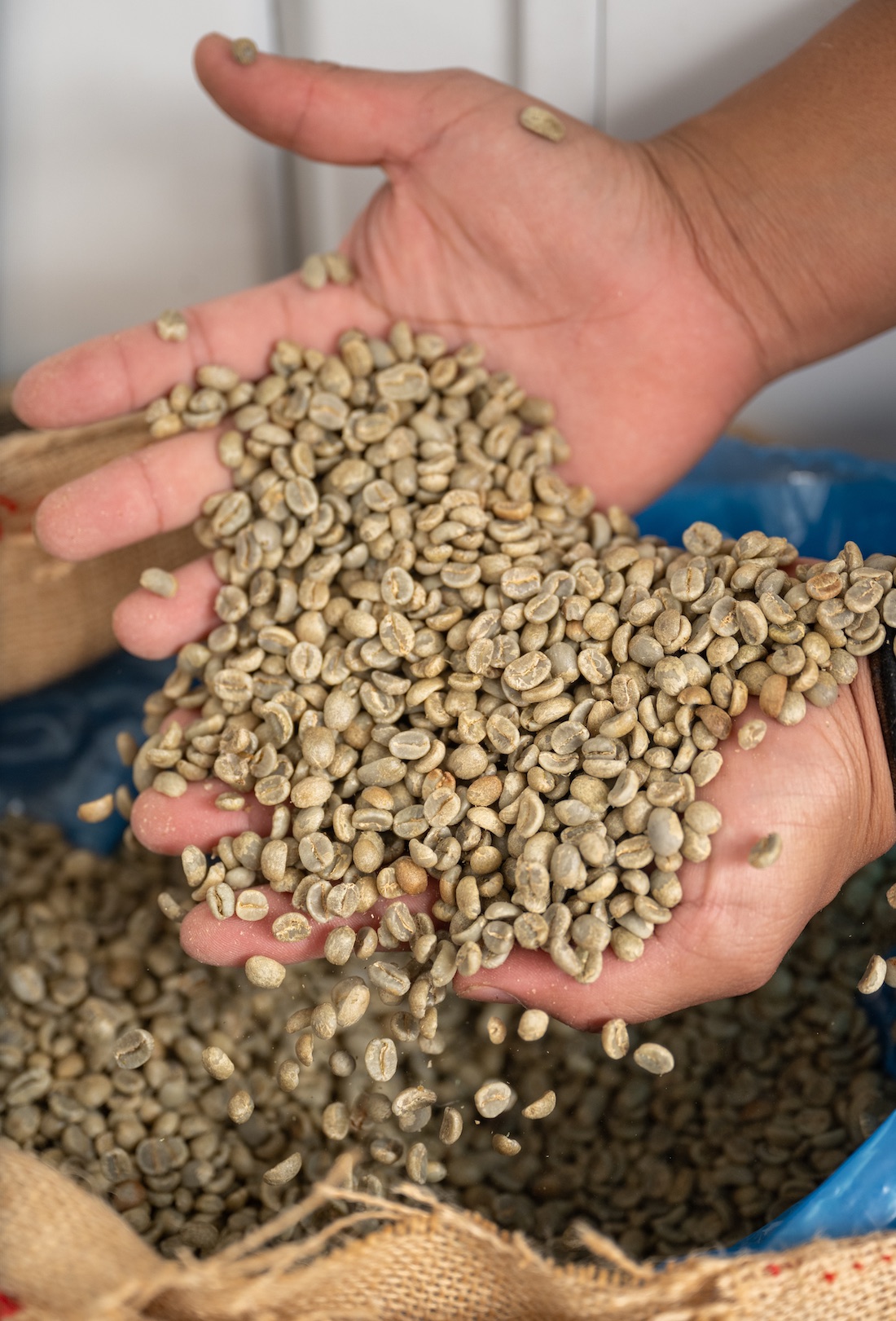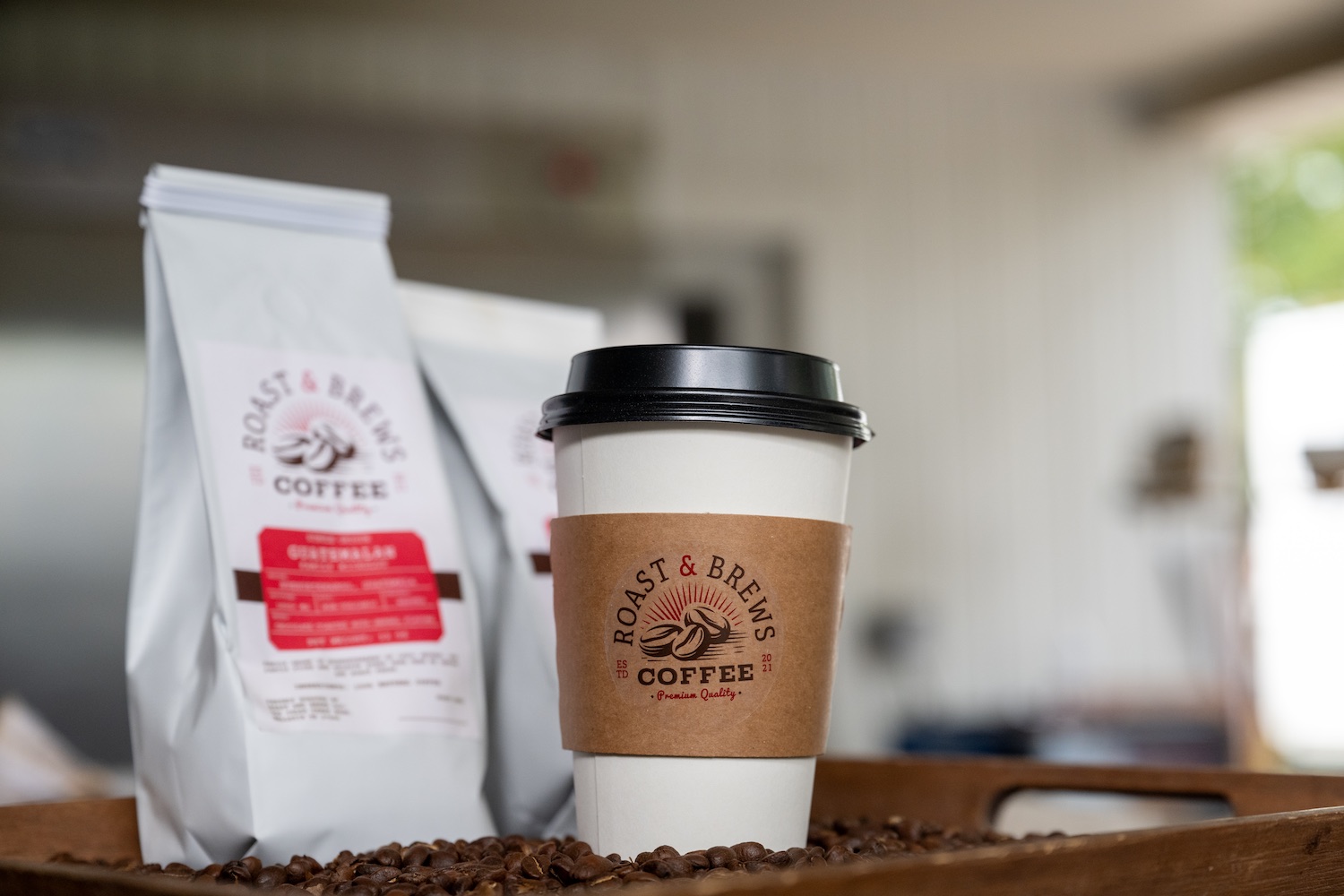News
Tech alumnus brings taste of Hispanic culture to middle Tennessee with coffee roasting, food truck businesses

Tech alumnus Miguel Mendieta monitors the temperature of the coffee beans in his small
batch roaster.
Hispanic Heritage Month may conclude on Oct. 15, but Tennessee Tech University graduate
Miguel Mendieta helps his Middle Tennessee community celebrate it every day.
A 2015 human ecology graduate with a concentration in nutrition, Mendieta uses his
training to bring his love of Central American coffee and traditional Mexican food
to people in the Nashville area – and the foundation of that love is family.
“Everything we do is because we truly have a love for it. My family is from Mexico,
my wife Amalia’s family is from Guatemala, but we both come from families who love
food, who grow it from the ground up, and we have a passion for sharing it with others,”
Mendieta said.
With his brother-in-law, Juan Matias, Mendieta started a coffee business, Roasts &
Brews, in which they import coffee directly from the Matias family farm started by
Matias’s grandfather in Huehuetanango and from farms in other remote Guatemalan villages.
The business has grown from providing coffee services at local farmers’ markets to
online ordering.
In February 2022, the family also started a food truck business, Don Miguelito’s,
after noticing an absence of traditional Mexican fare at area festivals and events.
The menu consists of traditional meats like asada and carnitas in street tacos, burritos,
flautas, taquitos and other dishes prepared the way they would be in Mendieta’s home
state of Guerrero. 
Miguel Mendieta scoops up a handful of Guatemalan coffee beans that have yet to be
roasted.
“There’s so much diversity in the Hispanic culture, from music to art and architecture,
and of course, food and beverages. There are so many people of Hispanic descent living
in the United States now, it’s important for us to share that cultural diversity with
others because it helps us all establish a greater understanding of each other. That
sharing is also a way to honor our heritage and remember the people who came before
us,” Mendieta said.
In fact, he continued, so much cultural understanding can happen over a simple cup
of coffee.
“Although coffee originated in Ethiopia, it’s been grown for centuries in South and
Central America, but because coffee has become so globally colonized, it’s easy to
lose sight of that history,” Mendieta said.
According to Mendieta, in the U.S., we have become conditioned to use coffee as a
means of simply consuming caffeine to fuel our hustle culture. The evidence is clear
in the popularity of national coffee franchises and even the slogan, “America runs
on Dunkin.'"
But in Hispanic cultures, coffee is less of a caffeine fix and more of a drink served
for socializing with others at any time of day, often offered with a slice of bread
or pastry to friends or family members who stop by morning or evening, Mendieta said.
Perhaps people from those cultures take their time consuming it, he said, because
it also takes patience to grow it.
It takes three to four years from the initial planting for coffee to mature into a
consumable product, Mendieta explained, and thereafter, it’s harvested only once a
year. Because it often grows in such remote and mountainous areas, it’s almost always
impossible to use technology like tractors to harvest the crops. Farmers who grow
coffee usually pick it by hand and use donkeys or horses to transport the berries.
From there, it must be washed, dried and processed, with the beans taken to a mill
for any remaining skin from the berries to be removed.
“Coffee seems to bring joy to everyone, but it’s hard work to be a coffee farmer.
The farmers are doing the hardest work, but they’re often the ones getting left out
and not earning a fair profit,” Mendieta said.
Because the farmers harvest their crops only once a year, they typically rely on middlemen
to distribute their coffee to manufacturers and franchises, which gives the middlemen
the greatest profit margin (and is partly why a cup of coffee at a franchise is so
expensive).
The finished product – a bag and cup of Roasts & Brews coffee.
“We’ve established direct relationships with the family farms where we source our
coffee and deal directly with the importer who helps us purchase the coffee for our
business. We cut out the middlemen for the portion of coffee we purchase, so we can
give the farmers a better, fairer price,” Mendieta said.
The difference is a farmer bringing home about $2 per pound for coffee beans sold
to a middleman and $5 per pound sold to Mendieta’s business.
Part of what helped bring to life his family’s visions for both Roasts & Brews and
Don Miguelito’s is the practical knowledge Mendieta gained from Tech nutrition classes
like quantity food production and food management.
“As a student, I didn’t realize just how much I would be using that information in
the future, but there’s lots of science and lots of measurement involved in both businesses,
especially the coffee. There’s lots of conversion from metric to standard measurements
and roasting times and temperatures that must be considered,” he said.
“That academic knowledge is important, but the people skills are probably most important.
It all comes down to the soft skills the professors tried to teach us, about communication
and relating to people. I use those skills all the time, whether I’m relating to a
client, customer or employee,” Mendieta said.
Just as much learning, however, comes from experience.
“There is still so much to learn. Just last week, we attended a webinar about how
coffee has come to be what it is,” Mendieta said.
Not only are there different varieties of coffee beans, but the flavor profile of
each is determined by the nutrients in the soil of the specific location where it
grows.
“We can differentiate the flavors between the varieties we get from the family farms
in Guatemala. They each have their own distinct flavor profile,” Mendieta said.
That purity of flavor is another advantage Roasts & Brews provides over larger coffee
manufacturers by working directly with the farmers to produce small batch roasts.
For more information or to order, go to the website at https://www.roastandbrews.com.

